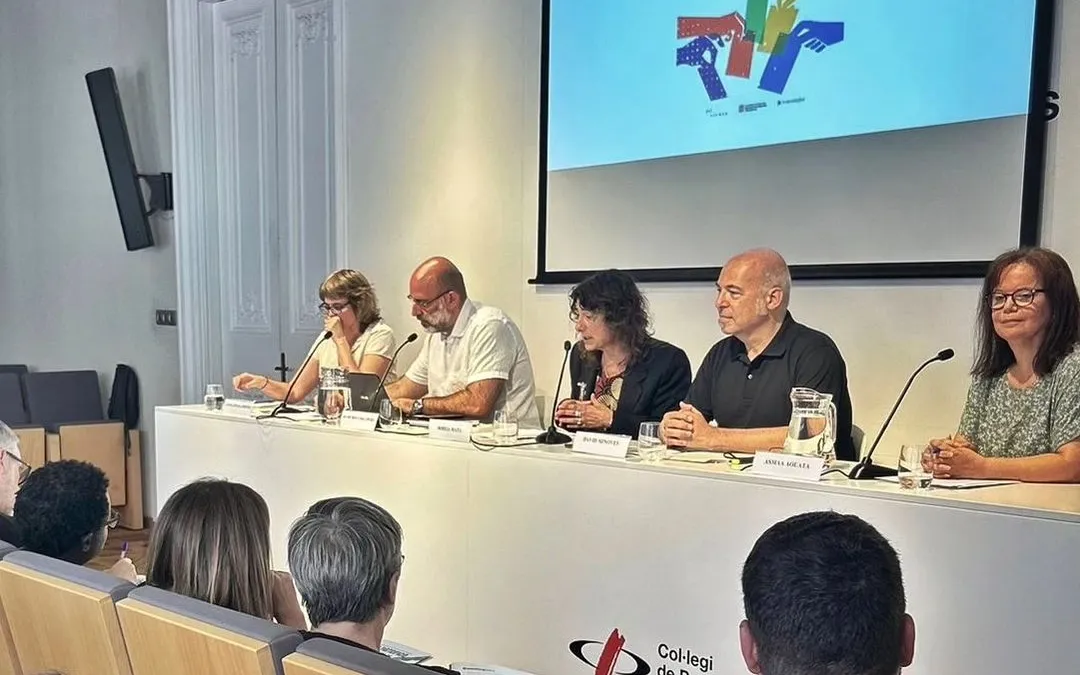Organisations and collectives involved in the rights of migrants are promoting "Vote for All" with the aim of making a change in legislation in favour of this.
Around thirty organisations have decided to take a step towards reclaiming the right to vote of migrants. The "Vote 4 All" platform, which was unveiled on November 28, 2017, has demanded the right to universal suffrage for foreign nationals as an essential step in bringing about a true democracy and in having a just and equal society. Among the groups which support the platform are SOS Racism Catalonia (an anti-racism movement), Tanquem els CIE (a campaign to close detention centres for foreign nationals), the Senegalese Coordinator of Associations in Catalonia, STOP Mare Mortum (a campaign in defense of migrants), and NOVACT (the International Institute for Nonviolent action). In this way, the platform aims to create urgency around a change in legislation which permits anyone who lives in Catalonia to vote and have their vote count in elections.
According to the platform, 11.3% of the foreign nationals of legal age who live in the Spanish state could not vote in the state elections in 2015. For this reason, the initiative aims to secure the right to vote by two methods: the modification of Article 13 of the Spanish Constitution, and the acknowledgement of the active and passive right to vote linked to residence in the area, which is recognised through official registration of residency. The European Commission and the European Parliament have both declared themselves in favour of granting legal immigrants the right to vote in municipal elections, but this is not recognised in the Spanish Constitution. Ireland, Sweden, Denmark, and the Netherlands are countries which have become pioneers in recognising the right to vote of foreign nationals.
The "Vote 4 All" platform has created a manifesto in which the situation is analysed and some requests are made. The first, to not tie citizenship to nationality. Secondly, that Article 25 of the International Covenant of Civil and Political Rights be applicable to any resident of any state. Lastly, it asks that foreign nationals over the age of 16 should also be entitled to vote.
“We have to revert this situation of the infringement of rights which has been taking place for decades,” the platform has stated. In past years, they have made a number of demands such as in their opposition to the existence of CIEs (detainment centres for foreign nationals) and the norms for controlling borders and asylum. They have also made advances in the fight against institutional racism and the criminalisation of immigration.
The presentation, which took place in the function room of the Sants Parking Area Community Centre, included a round table with contributions from Oumou Blade (Antiracist Salt, an anti-racism group from Girona), Fatiha El Mouali (Unity against Racism and Fascism), Marcos Aparicio (University of Girona), Karlos Castilla (SOS Racism Catalonia and the Human Rights Institute of Catalonia), and was conducted by Omaira Bertran, journalist and member of Latin Americans for Catalonia.
One important piece of information which has been shared by the platform is that Spain’s immigration law recognises the right to vote of foreign nationals in municipal elections only. What’s more, those who come from countries outside of the European Union are required to have a reciprocation agreement with their home country, that is, that they will only be permitted to vote in Spain if Spaniards living in their country are also allowed to vote in elections held there. This includes countries such as Bolivia, Peru, Chile, Norway, and Iceland.









Add new comment